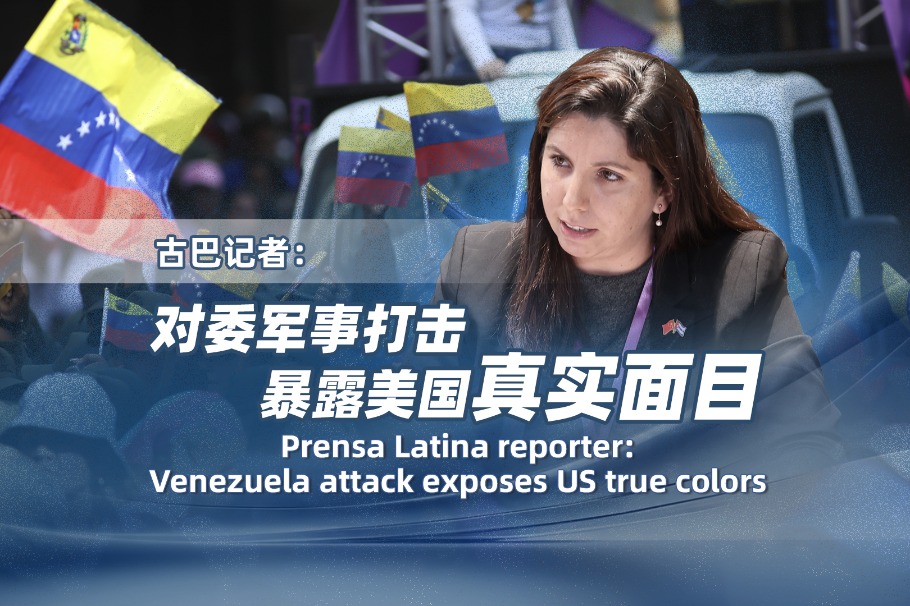US' scaremongering in South Pacific exposes how alarming its problematic behavior proves: China Daily editorial

With China's influence in the South Pacific growing, it is apparent that alarm bells have been ringing in Washington. Despite the Joe Biden administration's claims that the US has no objection to the Pacific island countries cooperating with China, it has been trying to drive wedges between them.
Last September, US President Joe Biden held a summit in Washington with the leaders of the Pacific island countries in which he pledged stronger US support for the region. A similar summit is due to be held later this year. These summits are just part of the Biden administration's charm-or-coerce re-engagement with the region.
In the latest diplomatic overtures to the region, both US Secretary of State Antony Blinken and Defense Secretary Lloyd Austin, during their respective visits to Tonga and Papua New Guinea this week, warned of China's so-called problematic behavior.
But in response to Blinken's warning on Wednesday, Tongan Prime Minister Siaosi Sovaleni said his country had no concerns about its relationship with China, which was focused on development such as infrastructure.
Likewise, Papua New Guinean Prime Minister James Marape told Austin on Thursday that his country welcomes cooperation with China, stressing that it is purely economic. He also made it clear that Beijing had not made any request for any form of military relationship, and that the US should not consider Papua New Guinea to be a launching pad for any offensive anywhere in the world.
Compared with China's cooperation with countries in the region, which is focused on mutual development, including the policing agreement with the Solomon Islands, which is aimed at maintaining social stability in the country, the US' intentions in the South Pacific are truly problematic and troubling, as there are growing concerns that it is setting the stage for war.
Following their scaremongering in Tonga and Papua New Guinea, Blinken and Austin will no doubt seek to ensure that their Australian counterparts are on the same page during their talks on Friday and Saturday in Brisbane. While paying greater attention to the South Pacific, the US is pressing its allies in the region, Australia and New Zealand, to stay in step.
Speaking at a news conference in New Zealand, on Thursday, the second stop on his trip after Tonga, Blinken said that the door was open for New Zealand and other partners to engage with AUKUS, the trilateral alliance the US formed with Australia and the United Kingdom. Such a dangerous signal should sound the alarm to both the region and the world that the US is whipping up bloc confrontation even at the cost of nuclear proliferation as the initial aim of AUKUS is to help Australia acquire US nuclear-powered submarines.
As such, compared with China's equal, reciprocal cooperation with the region, the US' role in the South Pacific is all about expanding strategic influence and fanning bloc competition. It can be predicted that such an undesirable approach will only be greeted with more cold shoulders. With Washington in a fervor of excitement at reliving the Cold War, that is cause for concern for all peace-loving countries.
Today's Top News
- China's CPI up 0.8% in Dec
- Report slams Tokyo's nuclear weapon aims
- Nation's crime rate touched record low last year
- Nation's space program records stellar year of firsts
- Top Party leadership hears series of annual work reports
- 'Great ship' of shared future sails onward






























